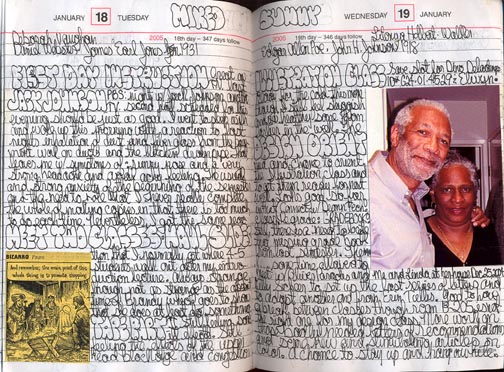
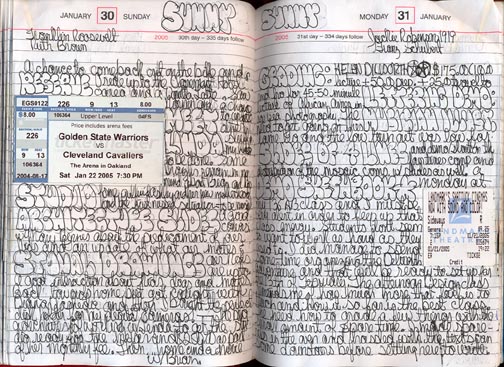
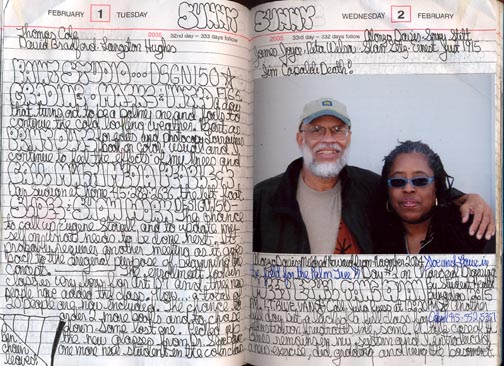
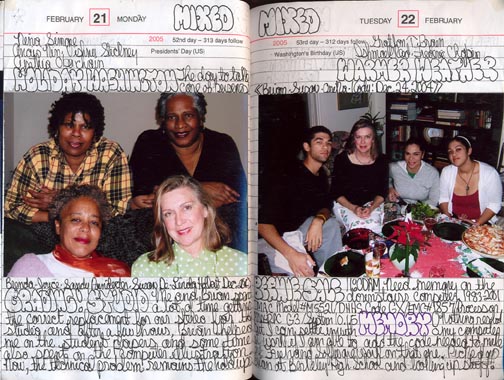
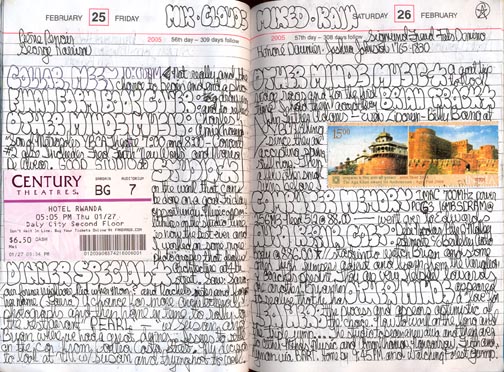
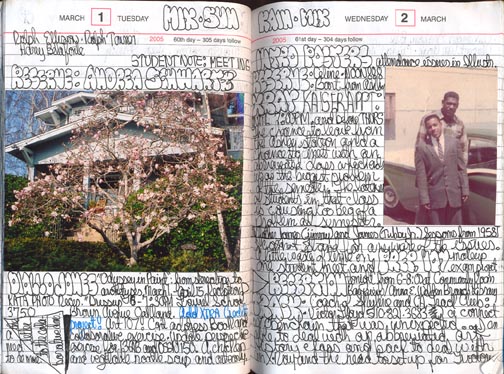
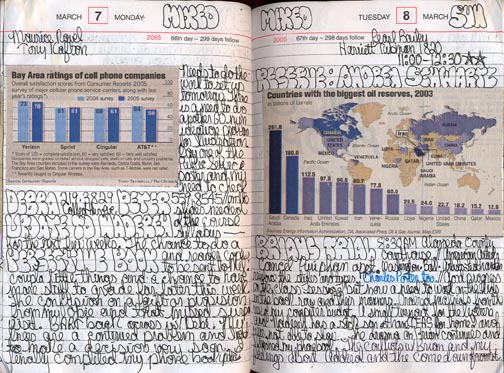
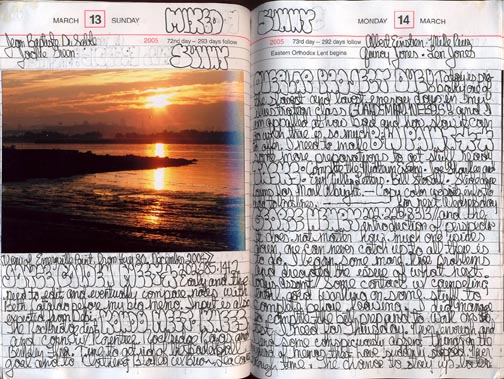
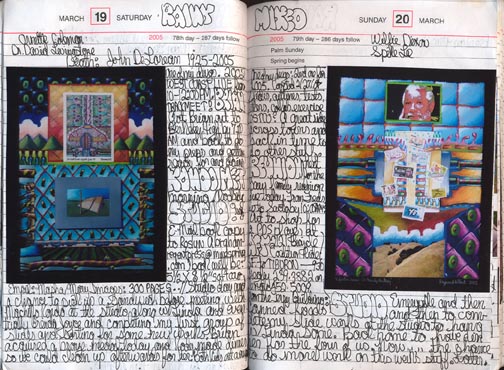
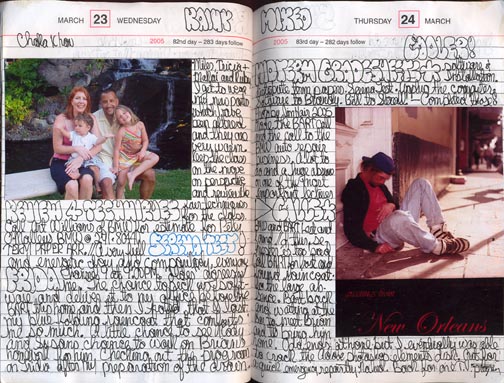
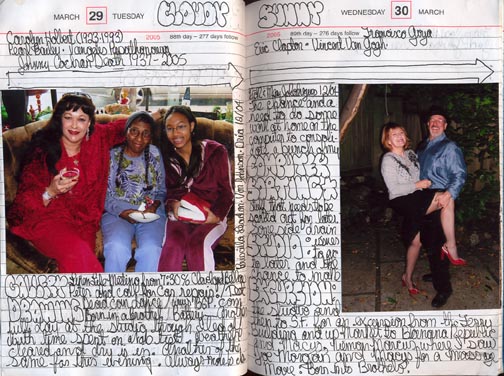
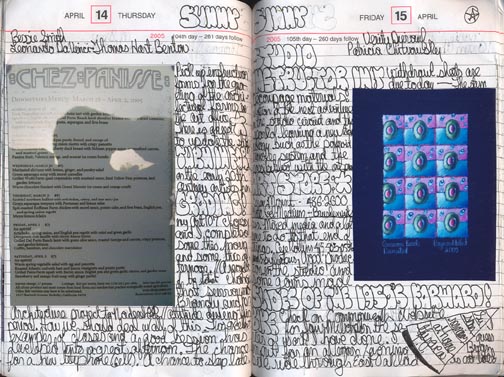
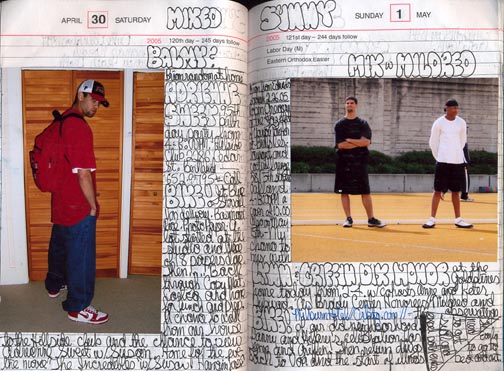
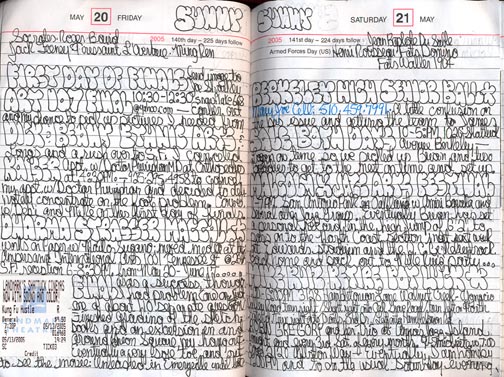
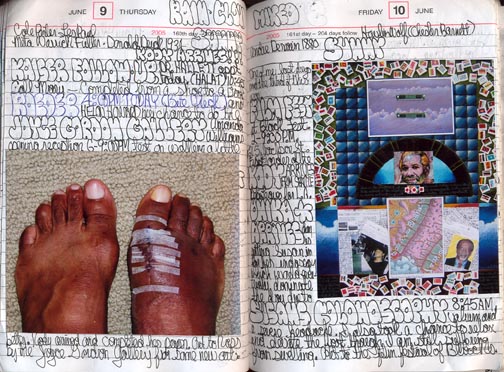
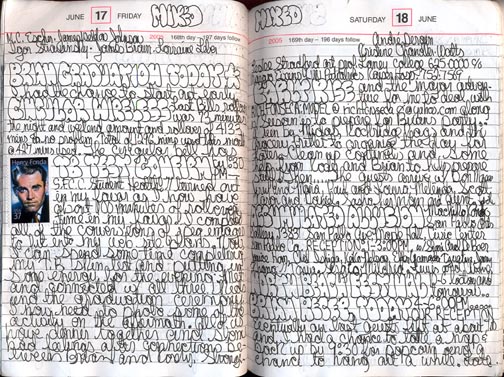
A learning expression sharing information for keeping a journal, diary or daily reminder.
RAYMOND HOLBERT
















I also try to think of these recording sources as a record of growth. They can be used hourly, daily, weekly, monthly or any combination of times. Save and use images to visually enhance your journal and to reserve visual memories. These images record what you want to remember or save. They can be photographs which have been trimmed down to smaller sizes, magazine images, tiny statistical articles, advertisements, drawings, diagrams, ticket stubs and labels. Anything that you consider memorable or important will do. Use both printed and written characters to record or collect your ideas. Some random daily suggestions for writing could be: Weather conditions, how you started versus how you ended your day, and positive or negative events. Annex pages can be kept somewhere within your journals to keep information or reminders such as; things to do, places to go, movies, music, books, codes, combinations, phone numbers and lists to remember. Birthdays, Anniversaries or noteworthy events can be listed daily in a calendar.
Daily reminders are best used to remember important dates. You can accumulate this information over a short time to be used for as many days, weeks, months, or years as needed.Trivia can also be seen as importantsuch as birthdays of people who share our birthday. Include relatives friends, mentors, heroes and sheros, important figures in history, advisors, idols, or alter egos.
For the personal approach in a journal, diary or daily reminder, include by any means, anything that you consider important such as your diet or intake of food especially when health is critical. Exercise habits can give you an idea of what you have been doing and how they may affect you. Your entries will help you to maintain a clear personal image of yourself. Often journals will have some parts which are very private or secretive. You may need to decide who may have access to view or read your journal, reminder or diary. Incorporate your personal tastes as often as possible. Your interests in images can be used to establish an alphabet of symbols which eventually reflect your life in the long and short run.
Usually people have few impressions of how to keep these recording sources. Others feel that one must be very creative to do this. There are no artistic standards and therefore hundreds of approaches. I will show some examples of these approaches through slides after we cover an overview of more specific ideas related to personal entry books, daily reminders and journals. Some people throughout history have found ways to get lots of mileage out of their entries (Andy Warhol, Anne Frank, Anais Nin, Joe Blow or etc.)
Consider how important a journal can be to family members and close friends after you exit this life. Memories after all are what we use to see where we are headed in life. These written memories remind us that what we choose not to do is just as important as what we choose to do. I suggest that you include text in various kinds of the letter form to distinguish the differences of events in your daily life. This is meant to give some graphic variation to your pages. This process will give you a tangible method of observing your lifein visual forms. We learn so much from the books we have read all our lives. Why not have one devoted to our own lives? Think of it as a manual to help you manage your life.